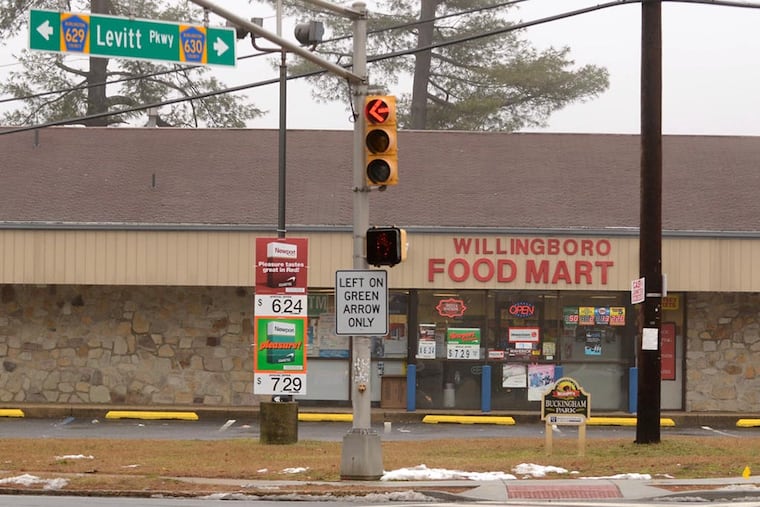Which voices matter in renaming Willingboro’s Levitt Parkway? | Opinion
In a predominantly Black town, should the opinions of white former residents be considered?

When my family moved to Willingboro, N.J., it was our 15th house on four continents in my 14 years. Such is the life of many military families. Perhaps, for this reason, I tend not to form emotional attachments to places. A frequent joke among military “brats” is that we aren’t really from anywhere.
Coming from that background, I was surprised to learn of resistance among some high school classmates to a township initiative to rename Levitt Parkway, a major thoroughfare named after real estate developer William Levitt. After all, we graduated in 1976, 45 years ago. Why would people who mostly no longer live in Willingboro care about renaming a street? “I feel it’s important to maintain our ties with our roots,” explained former classmate and Facebook friend Bonnie Morrison, whose mother still lives there.
I hadn’t really thought of it that way. Many of us belong to Facebook groups where we sometimes reminisce about our childhood experiences together. Certainly, for people who feel like early Willingboro represents part of their heritage, renaming a street named for the town’s developer could strike a sensitive chord.
Willingboro is unique in that it was predominantly farmland until Levitt bought hundreds of acres and began building a planned community right around the time we were born. In that sense, many of my friends were part of Willingboro’s beginning. Bonnie, who is white, further clarifies that her grandparents were among the first home buyers in the new town. Now it makes more sense to me.
Willingboro’s history provides insight into this discussion. First, initial sales of Levitt homes in 1958 contained restrictive covenants in which buyers had to agree to restrict future sales to white buyers. Willie James, a Black Army officer stationed at nearby Fort Dix, sought to buy a new home in 1958 and was refused. He sued. After a series of appeals in James’ favor, Levitt was forced to sell him a home in 1960. By the time my Black family moved to Willingboro in 1973, the population was about “18% nonwhite” and I kept a multicultural circle of friends.
News articles in 1974 reported accusations of Realtors engaged in “blockbusting,” trying to convince white homeowners “to sell quickly before the growing Black population caused their property values to decline.” Then in the 1980s, a massive mortgage fraud scam was exposed, leading to the conviction of 40 real estate brokers, agents, and mortgage company executives. In brief, phony documentation was submitted for buyers with Department of Housing and Urban Development or Veterans Affairs mortgages in Willingboro, and buyers were approved for these federally guaranteed loans, even though they did not qualify. Mortgages defaulted and taxpayers were left to foot the bill. The scheme reportedly included recruiting buyers from blighted predominantly Black neighborhoods in other cities, some even on public assistance. Some of those buyers acclimated and did very well. Others did not.
Today, U.S. Census Bureau reports indicate Willingboro is 70% Black, compared with 16% of the county-wide Black population, followed by Burlington City, New Hanover, Burlington Township, and Edgewater Park, all of which have roughly 30% Black populations. Why do so many Black people live in Willingboro compared with surrounding towns? Many of us followed friends and family who already lived there. In our case, Willingboro, along with towns between Willingboro and Joint Base McGuire-Dix-Lakehurst, was a popular place for active military personnel and retirees of all races. But 70% Black in a county where the mean is 16%? The history of the 1970s and 1980s suggests 70% did not happen by accident.
In 2021, Willingboro is a predominantly Black town. If the township proposes a street name change so as not to honor a developer whose racist practices interfered with the basic human rights of our foreparents, that definitely makes sense to me. But I left in the 1980s, so I don’t think I have a say.
The opinions of all concerned parties should be heard, and that includes Willingboro’s earliest settlers. But at the end of the day, people who live in Willingboro today represent the majority of people in the conversation. Shouldn’t majority opinion prevail?
Guy Weston is a family historian and public health consultant.